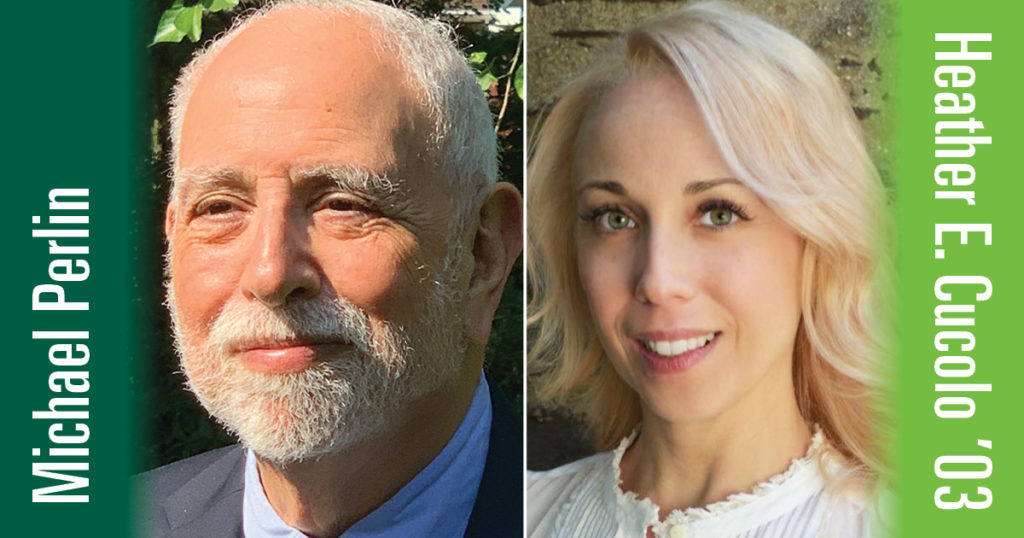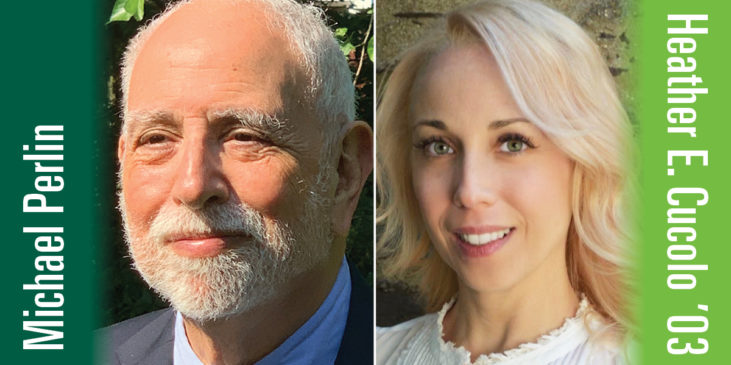
In the early 1970s, Professor Emeritus Michael Perlin, then a public defender in New Jersey, received a ticket for skipping a bridge toll.
Confused, because he was in court at the time of the alleged infraction, he called the phone number on the ticket. The man who answered identified himself as the owner of a local plumbing company. After a confusing exchange, Professor Perlin realized that in addition to the man’s plumbing duties, he served part-time as a local justice of the peace. The ticket was quickly dropped, but the memory of a non-judge who administered questionable justice remained in Professor Perlin’s mind.
Over time, Professor Perlin was troubled to learn about other examples of this practice. They included non-judicial administrators who unilaterally made decisions on the confinement conditions of psychiatric patients, a New York law that allows judges to outsource certain pre-trial motions to non-judges to hold hearings and file reports with the courts, and South Dakota law that has been used to allow a non-judicial probation officer to modify the terms of a sex offender’s judicial sentence.
He and Professor Kelly Frailing of Loyola University New Orleans connected on the topic and agreed that the issue of “judicial outsourcing” posed significant concerns. When they decided to co-edit a new book on the topic and sought contributors, Professor Perlin quickly turned to six former students.
From Students to Collaborators
The forthcoming book—Justice Outsourced: The Therapeutic Jurisprudence Implications of Judicial Decision-Making By Non-Judicial Officers (Temple University Press, 2021)—will include chapter contributions by six of Professor Perlin’s former students, now experts in their own rights.
The alumni contributors are Heather Cucolo ’03 (now a Distinguished Adjunct Professor at NYLS), Deborah Dorfman ’92 (who has taught at NYLS in the past), Henry Dlugacz ’91 (who has also taught at NYLS), Mehgan Gallagher ’15, Alison Lynch ’13, M.A. ’15, and Naomi Weinstein ’10.
“I love working with everybody,” Professor Perlin said. “It fills my heart. That sounds corny, but I have been able to take what I did and pass it on. My students have surpassed me in some ways, which is what students should do.”
Chapters authored by alumni focus on how non-judicial officers influence decisions that affect prisoners with mental health issues, migrant children with mental illness, people with alcohol and substance use challenges, and other vulnerable groups—as well as ethical considerations in the overall use of non-judicial officers.
Professor Perlin began collaborating with former students in the early 1990s while planning a major conference on issues related to mental disability law. One of his former research assistants, Deborah Dorfman ’92, was then a new practitioner in the field. He asked if she wanted to help plan the event, which featured high-profile advocates and policymakers, and she heartily agreed.
Since then, he has regularly authored scholarly articles and books with former students on topics at the intersection of criminal law and psychiatry/psychology.
Advancing Therapeutic Jurisprudence
At the core of Professor Perlin’s (and the alumni group’s) work is the concept of therapeutic jurisprudence. Therapeutic jurisprudence refers to the law’s potential to benefit (to have a therapeutic effect on) those who are influenced by it—or to have the opposite effect. The interdisciplinary field engages professionals in law, psychiatry, sociology, and criminal justice who seek to shape laws and legal practices that promote dignity, respect, and wellness.
Professor Perlin is on the Board of Trustees and an Honorary Life President for the International Society for Therapeutic Jurisprudence. The group has chapters around the world, including in Israel, Japan, Chile, France, and New Zealand.
As a Distinguished Adjunct Professor of Law at NYLS and a board member of the International Society for Therapeutic Jurisprudence, Professor Cucolo brings this context to her teaching. She has taught at NYLS since 2007 in the areas of mental disability law, sex offender law, mental health issues in jails and prisons, and related topics.
“My students are so engaged and have so much to offer,” she says. “Given what’s happening with COVID, we’re thinking about how we care for each other and ourselves, how we effectively represent our clients, and assistance we can put in place that better serves the court system, all through a therapeutic jurisprudence lens.”

